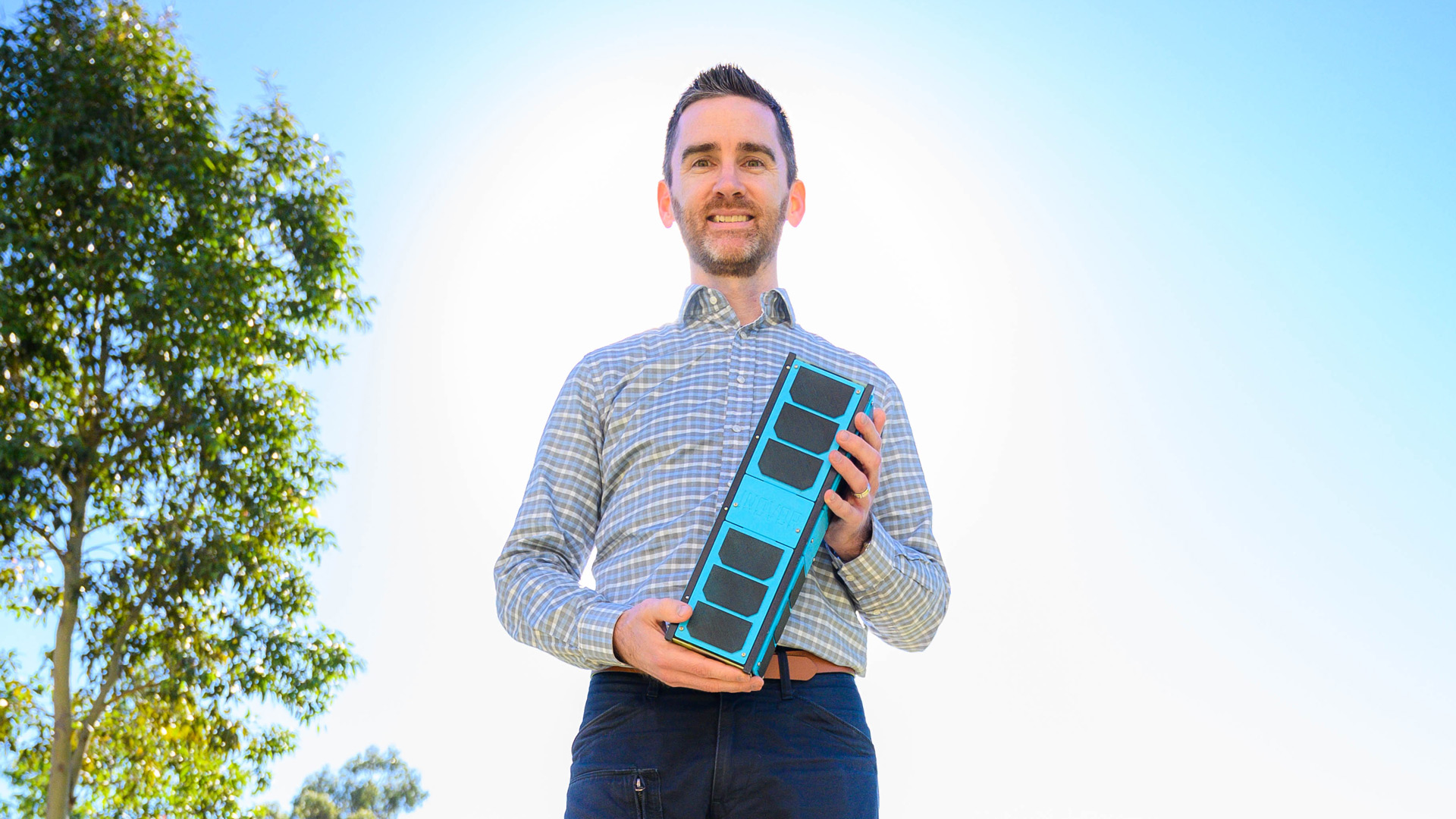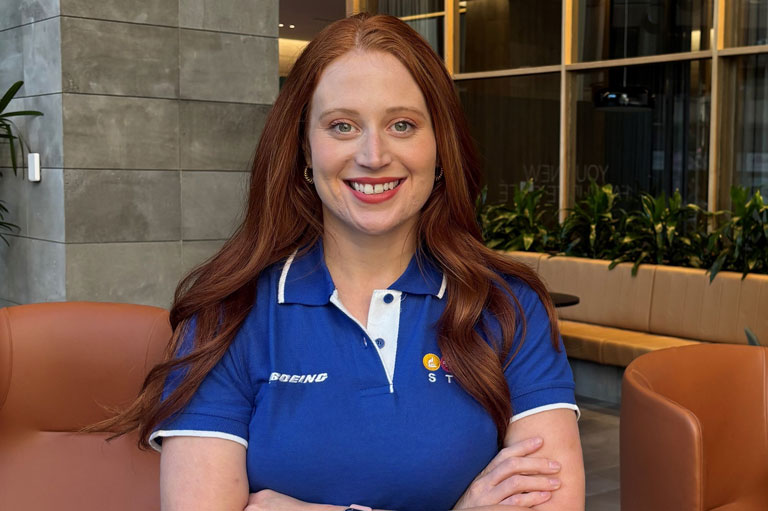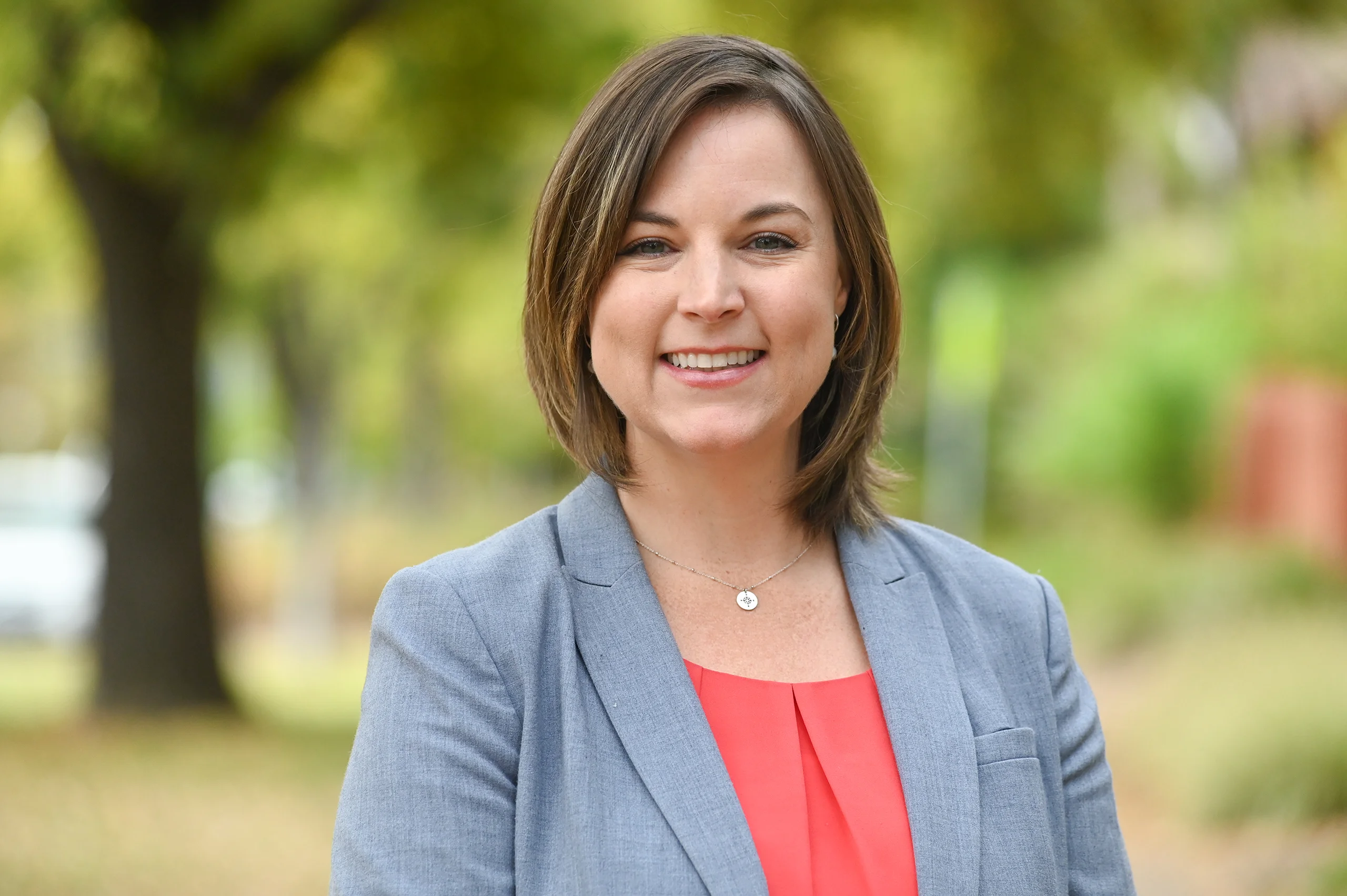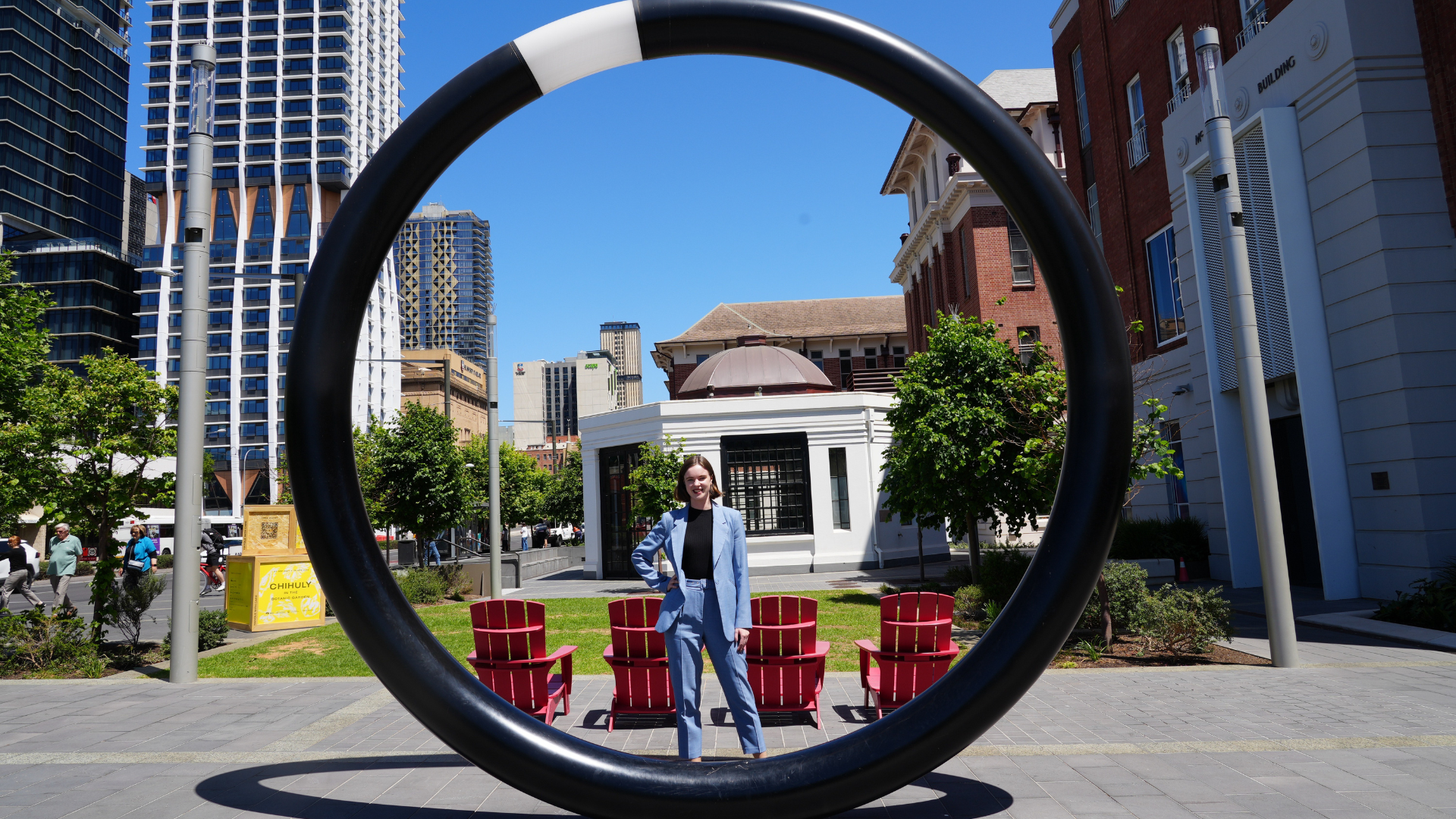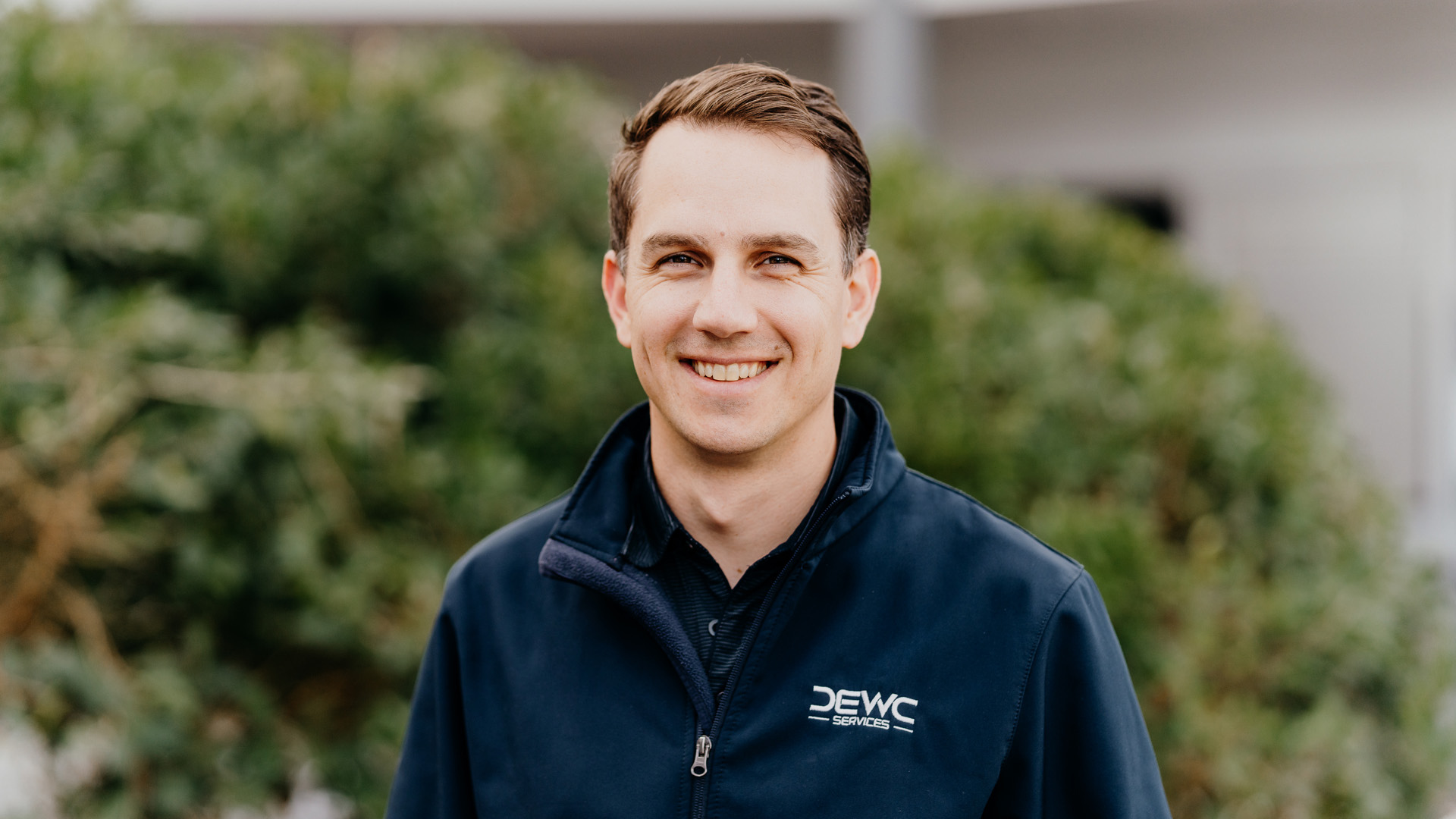Ben’s giant leap into new space career
Wanting to be part of an industry fuelled by innovation and some of the country’s brightest minds, South Australian project manager Ben Adams knew it was time for a change when he took one giant leap into a new career in the space sector.
Having worked in the private and public sectors in a range of technology, strategy and project delivery roles, Ben found himself stuck in a mid-career crisis when the appeal of a career in space was something he could no longer ignore.
“I was reaching that personal realisation in life that it’s so important to be passionate about what you do for a job, because then it’s not really a job anymore – you are just doing what you enjoy,” he said.
“I went on this journey of discovery to see how I could transfer the skill sets that I had around technology, leadership and project management and find my way into a more exciting industry.
“I’ve always been fascinated with space since I was a boy. I remember in Year 3 I did this really big poster about the space shuttle and that was probably the first significant moment in my childhood I can remember learning about space.”
Ben made the bravest leap of his career during 2017 when Adelaide hosted the International Astronautical Congress (IAC) – the world’s largest annual conference for the space industry.
“It was a really big time because it was when Elon Musk visited Adelaide and announced that SpaceX would take people to Mars, and of course it was also the time when the Federal Government announced there would be an Australian Space Agency,” he said.
“I visited the International Space University booth at IAC to find out more about the university and a space studies course. That was the time when I decided [the space sector] was for me.”
Ben completed the Southern Hemisphere Space Studies Program, an intensive five-week space-focused course run by the University of South Australia in partnership with the International Space University, followed by a Graduate Certificate in Space Studies at UniSA.
“During the course, I had the chance to spend time with an astronaut, which was really inspiring and educational. It was one of those opportunities that money can’t buy.”
Three and a half years later, Ben is now Chief Operating Officer at South Australian-based space technologies company Inovor Technologies, which offers specialist satellite mission solutions for its customers along with its own space domain awareness and earth observation missions.
Based at innovation district Lot Fourteen, Inovor is the only spacecraft manufacturer in Australia developing bespoke spacecraft subsystems and is designing and building Australia’s first state owned satellite, Kanyini, as part of a mission with the South Australian Government, SmartSat Collaborative Research Centre and local Internet-of-things company Myriota.
Ben’s role sees him manage a team project managers and system engineers who are responsible for the delivery of the satellite missions. He’s also heavily involved in business development and helps build relationships and establish new contracts, as well as deliver the company’s corporate services.
“Inovor’s first spacecraft is about to be launched later this year and then three satellites are being launched next year – it’s exciting to be part of some big moments in the company’s history,” he said
“It’s a terrific opportunity for me personally being in the industry right now to see it through its initial stage of growth.
“And it’s actually hard to imagine all the things that not just Inovor but the industry as a whole will achieve over the next decade.”
South Australia is home to a growing space ecosystem, consisting of more than 100 space-related organisations, as well as a thriving research and development and entrepreneurial community. As the industry grows, new opportunities are being created for young talent here in South Australia.
“Students don’t have to leave university and go overseas to be able to work in a high technology industry like the space industry. They can stay right here in Adelaide. The quality of education in South Australia is fantastic and we employ so many graduates direct out of university,” he said.
“Whilst a larger number of roles in the space industry are in engineering, there are lots of other ways to be involved. Space companies, like ours, still need accountants, lawyers and people in communications and marketing.
“I would absolutely encourage students and particularly females in primary school, high school and university to stick with their STEM education, but not to rule themselves out if that’s not what they’re interested in; they can still be part of the space industry in other ways.”
Careers in the space industry are so much more than astronauts and rocket scientists. Learn about career pathways and opportunities in South Australia to find your place in space.
Published 12 August 2022
Explore More
Tori Tasker started her career digging up ancient bones as an archaeologist, before pivoting to new career trajectory in the space sector.
When Shena Howell was pursuing her passion for the arts at a young age, she never thought her natural creativity would drive her to become an innovative thought leader in South Australia’s defence and space industries.
As one of South Australia’s youngest female STEM graduates rocketing to success in the state’s space sector, Georgia Dallimore is passionate about inspiring the next generation of women in STEM to reach for the stars.
For Royal Australian Air Force Veteran Anthony Kunda, a career in the defence industry has proved to be just what he was looking for post-service – combining skills learnt while serving his country with his passion to be a part of something bigger.
